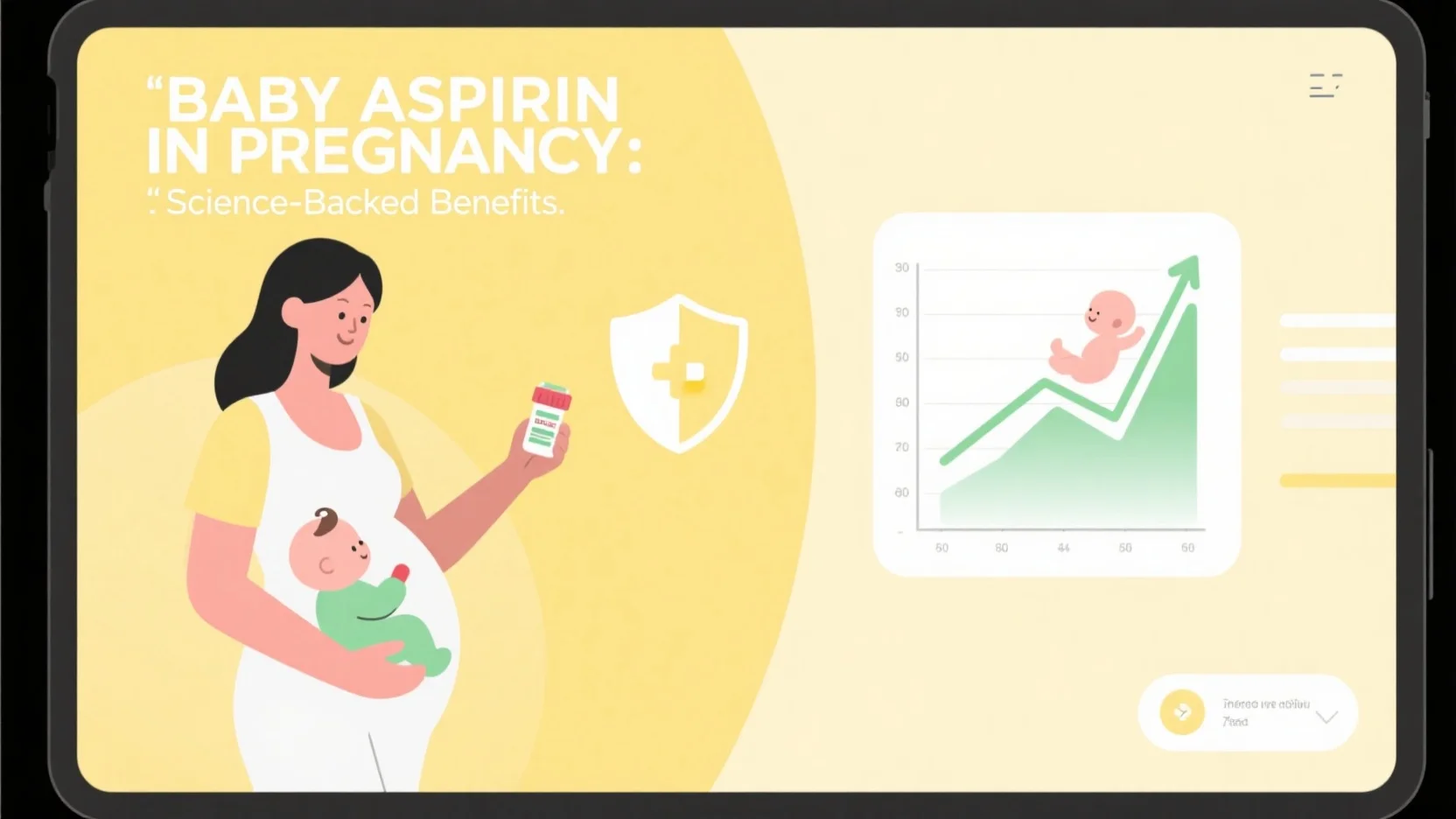💊 Key Findings at a Glance
- May reduce miscarriage risk in women with prior pregnancy loss (NIH study, 2021).
- Lowers preeclampsia risk by up to 24% (ACOG guidelines).
- Safe in low doses (81 mg/day) but consult your OB first.
🔬 What the Research Shows
1. May Help Prevent Miscarriage
A 2021 NIH study of 1,227 women with prior miscarriages found:
✔ 8 more pregnancies per 100 women (with hCG detection)
✔ 15 more live births per 100 women
✔ 6 fewer losses per 100 women
How? Aspirin may reduce blood clots/inflammation linked to miscarriage.
⚠️ Note: Earlier studies showed mixed results—strict adherence to dosage matters.
2. Reduces Preeclampsia Risk
ACOG recommends low-dose aspirin (81 mg/day) for high-risk women:
- Who should take it?
- History of preeclampsia
- Chronic hypertension/diabetes
- Multiples pregnancy (twins/triplets)
- When to start? 12–28 weeks (ideally before 16 weeks).
🩺 Is It Safe During Pregnancy?
✅ Yes, in low doses (81 mg/day)—no harmful effects on mom or baby.
❌ Avoid high-dose aspirin (linked to bleeding risks).
Always consult your doctor first!
🤰 Who Might Benefit?
✔ Women with 1+ miscarriage (especially if unexplained)
✔ Those at high preeclampsia risk (per ACOG criteria)
✔ Patients with autoimmune disorders (e.g., antiphospholipid syndrome)
🚫 Who Should Avoid It?
✖ Allergy to aspirin/salicylates
✖ Bleeding disorders
✖ Peptic ulcers
✖ Without OB approval
💡 Bottom Line
Baby aspirin isn’t for everyone—but for high-risk pregnancies, it could be a simple, low-cost protective measure. Talk to your doctor to see if it’s right for you.
🗨️ Have you taken baby aspirin during pregnancy? Share your experience!








